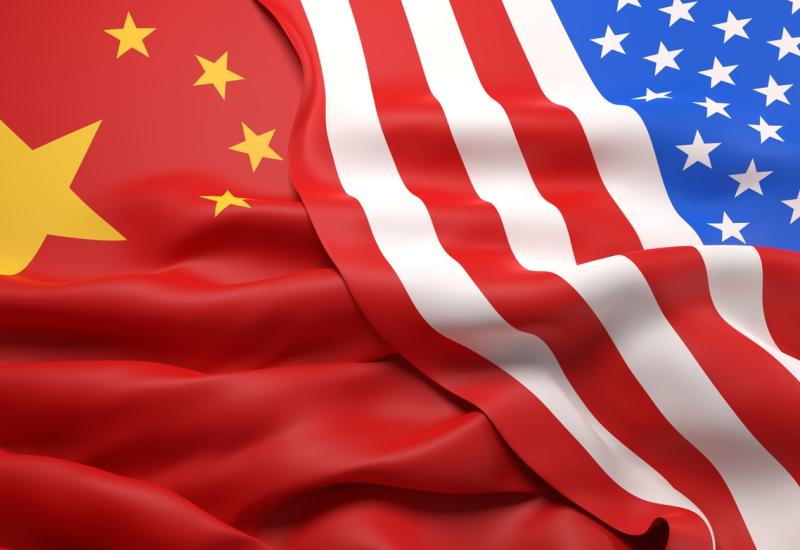
BioNTech turns $800m into $1.5bn-plus
Bristol buys into the frenzy, and VEGF bispecific value inflation continues.
Bristol buys into the frenzy, and VEGF bispecific value inflation continues.

If BioNTech's $800m acquisition of Biotheus seemed rich last November, it no longer does today. On Monday BioNTech managed to flip Biotheus's key asset, the anti-PD-L1 x VEGF bispecific BNT327, to Bristol Myers Squibb in a co-development/co-commercialisation deal meaning that BioNTech has immediately made back the $800m – and then some.
The latest tie-up continues the frenzy of deal-making over PD-(L)1 x VEGF assets, with Bristol following Pfizer's $1.25bn acquisition of ex-China rights to 3SBio's SSGJ-707 two weeks ago. The implied inflation in the value of such asset now means that any biotech owning one will have hopes of a big payday should it strike a deal with one of the big pharmas yet to enter the space.
Such big pharmas include AstraZeneca, Roche, Johnson & Johnson and AbbVie, though all have extensive expertise in bispecifics, so might well have in-house research ongoing behind the scenes. However, if they want to get their hands on an asset that's already got clinical data behind it the only thing to do is mobilise their business development teams.
50/50 share
This is clearly the thinking of Bristol, which has handed across $1.5bn for a share of global rights to BNT327, with development, manufacturing, profits and losses being split 50/50 with BioNTech.
In addition BioNTech will receive a total of $2bn spread across "anniversary payments" whose only condition appears to be that the deal remain in place until 2028. For Bristol this is actually the second big transaction for a China-originated bispecific MAb: in December 2023 the company paid $800m for ex-China rights to SystImmune's BL-B01D1, an ADC targeting EGFR x HER3.
The obvious implication of the latest deal is that BioNTech's takeover of Biotheus was a stroke of genius. BioNTech has effectively turned $800m into $1.5-3.5bn – and it still retains a 50% share in BNT327, with the remainder of Biotheus assets thrown in for free.
Those Biotheus assets include clinical-stage bispecific MAbs against EGFR x cMet, TIGIT x PD-L1, Claudin18.2 x 4-1BB, PD-L1 x 4-1BB MAb and others. A year before buying Biotheus BioNTech had paid $55m up front in a licensing deal covering just BNT327.
Those biotechs still in possession of unpartnered PD-(L)1 x VEGF bispecifics will note how the value of such assets has climbed.
Notable PD-(L)1 x VEGF deals
| Date | Company | Source | Project | Deal type | Terms |
|---|---|---|---|---|---|
| Jun 2025 | Bristol Myers Squibb | BioNTech | BNT327 | 50/50 profit share | $1.5bn up front, $2bn in anniversary payments to 2028 |
| May 2025 | Pfizer | 3SBio | SSGJ-707 | Licensing | $1.25bn up front |
| Nov 2024 | Merck & Co | LaNova | LM-299 | Licensing | $588m up front |
| Nov 2024 | BioNTech | Biotheus | BNT327 | Takeover | $800m up front |
| Aug 2024 | Instil Bio | ImmuneOnco | IMM2510/ AXN-2510 | Licensing | $50m up front & near-term milestones |
| Nov 2023 | BioNTech | Biotheus | BNT327 | Licensing | $55m up front |
| Dec 2022 | Summit | Akeso | Ivonescimab | Licensing | $500m up front |
Source: OncologyPipeline.
It's likely that numerous big pharmas have been bidding against each other in recent months, with Bristol's deal for BNT327 coming just after Pfizer licensed 3SBio's SSGJ-707 for $1.25bn, and that move coming a few months after Merck & Co secured LaNova Medicines' LM-299 for $588m. This frenzy was kicked off by Summit paying $500m in 2022 for Akeso's ivonescimab.
It seems clear that the latest deal announcement was struck to coincide with ASCO, where ivonescimab is a notable absentee, though Summit did gatecrash the conference by toplining results of the Harmoni trial on Friday. SSGJ-707 featured in an ASCO poster on Saturday, while a study of BNT327 in mesothelioma is due to be presented on Tuesday.
Who's next?
Assuming that big pharmas yet to get in on the act are sniffing around the other players in this field, the question becomes which biotech will strike gold next; ApexOnco has previously published lists of unpartnered PD-(L)1 x VEGF assets.
One of these might have had business development teams casting an especially close eye over it in recent days: Huabo Biopharm's sotiburafusp alfa (HB0025), a PD-L1 x VEGF-trap fusion protein. This featured in an ASCO poster on Sunday in which a phase 1 trial in endometrial cancer was reported as yielding an 84% response rate among 51 patients.
Meanwhile, spare a thought for tiny Instil Bio, which last August paid $50m for ImmuneOnco's IMM2510 (now coded AXN-2510), a PD-L1 x VEGF-trap MAb fusion protein, perhaps in the hope of seeing its stock rise on the crest of this wave. However, Instil is still valued at under $200m, and it seems inconceivable that the likes of Pfizer and Bristol didn't cast their slide rules over AXN-2510 and passed in favour of SSGJ-707 and BNT327.
4048













